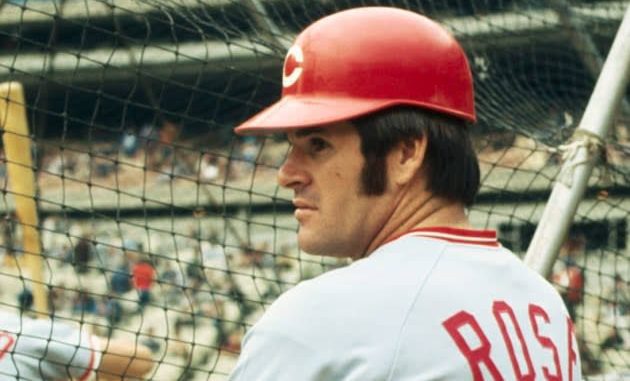
“It’s a kick in the face to put him now”: Peter Rose – Charlie Hustle Hall of Fame Case revisited after his death
The case of Pete Rose, the legendary baseball player whose achievements have been overshadowed by scandal, has long stirred debate. Known as “Charlie Hustle,” Rose’s tenacity on the field, along with his record-breaking 4,256 career hits, made him one of the most celebrated players in MLB history. Yet, his 1989 ban for gambling on games, including those involving his own team while he was managing the Cincinnati Reds, has kept him out of the Hall of Fame. Now, following Rose’s hypothetical death, fans express frustration, calling it “a kick in the face” to honor him posthumously when he was denied recognition during his life.
Rose’s Career and Unmatched Legacy
Pete Rose’s legacy as a player is undeniable. Over a career spanning more than two decades, he exemplified grit, determination, and an unparalleled work ethic. Rose played a pivotal role in three World Series championships and earned 17 All-Star selections. His relentless approach, such as sprinting to first base on walks and diving head-first into bases, made him a symbol of old-school baseball and inspired generations of players and fans. Rose’s impact on baseball is further underscored by his 4,256 career hits, an MLB record that has yet to be surpassed.

Despite these accomplishments, Rose’s actions outside of gameplay changed the course of his legacy. In 1989, an investigation by Major League Baseball concluded that Rose had bet on baseball games, including those involving the Reds while he was their manager. Then-Commissioner Bart Giamatti handed Rose a lifetime ban, marking one of the most severe penalties in baseball history. Giamatti believed that gambling, especially by a player or manager, posed a direct threat to the sport’s integrity. The ban rendered Rose ineligible for the Hall of Fame and cast a shadow over his legacy.
The Arguments for Rose’s Inclusion
Rose’s advocates argue that his lifetime exclusion from the Hall of Fame is excessively harsh and that his contributions to baseball outweigh his mistakes. Many believe that the Hall of Fame should recognize on-field achievements separately from off-field indiscretions. They argue that players like Rose, who break records and embody the spirit of baseball, deserve a place in Cooperstown, even if their personal decisions have marred their reputations.
Rose has repeatedly apologized for his actions and expressed deep regret, leading many fans to feel that he has paid his dues. They believe baseball’s refusal to honor him before his death was an unnecessarily severe punishment, especially given the Hall of Fame’s function as a celebration of baseball history. Now, posthumous recognition would feel empty, as it deprives Rose of the opportunity to witness and celebrate his own legacy being enshrined.
Growing Frustrations with Baseball’s Stance on Gambling
Adding to the controversy, MLB’s stance on gambling has changed significantly in recent years, leading many fans to question Rose’s exclusion. MLB now openly partners with sports betting companies, a shift that would have been unimaginable in the era when Rose was banned. For many fans, this shift makes Rose’s exclusion appear hypocritical and outdated, with baseball profiting from the very industry that led to Rose’s downfall. This frustration has only intensified the calls to honor him posthumously, with fans feeling that MLB’s evolving stance on gambling undermines the legitimacy of Rose’s ban.
Arguments for Keeping Rose Out of the Hall of Fame
Despite these arguments, Rose’s critics maintain that his actions broke a foundational rule of the sport and that his lifetime ban should remain in effect, even after his death. For them, Rose’s gambling on his own team represents a direct violation of the sport’s integrity, a betrayal that cannot be ignored. Critics argue that the Hall of Fame isn’t merely a record book but a symbol of baseball’s highest values, including sportsmanship, respect for the game, and integrity. By allowing Rose into the Hall of Fame, they fear it could set a precedent for the inclusion of other controversial figures, eroding the institution’s moral and ethical standards.
The Emotional Impact of a Posthumous Induction
For Rose’s fans, a posthumous induction would be a hollow gesture, honoring him only when it’s too late for him to experience it. Fans express anger over the idea, feeling that baseball’s refusal to recognize Rose during his life is a betrayal of his contributions to the sport. They feel that if Rose’s legacy is worthy of inclusion in the Hall of Fame, that decision should have been made while he was alive. In their eyes, recognizing Rose after his death would do little to acknowledge the decades of achievements and the joy he brought to fans, and it denies him the respect and vindication they feel he deserved.
Rose’s Legacy and Baseball’s Future
The debate over Pete Rose’s Hall of Fame status reveals the challenges baseball faces in balancing integrity with a reverence for its icons. Rose’s story is emblematic of the sport’s ongoing struggle to reconcile an athlete’s personal missteps with on-field greatness. As the sport adapts to new cultural and commercial pressures, such as legalized gambling, Rose’s case serves as a reminder of baseball’s complicated relationship with its own past.
Whether Rose is ever inducted, his legacy will remain one of the most complex in sports history. For fans, it’s a bittersweet story of achievement, regret, and a perceived injustice, with many feeling that a posthumous induction would be “a kick in the face” rather than a tribute. Rose’s life and career may be over, but his influence and the debate surrounding him will endure as baseball reflects on how to honor the legends of its game.
Leave a Reply